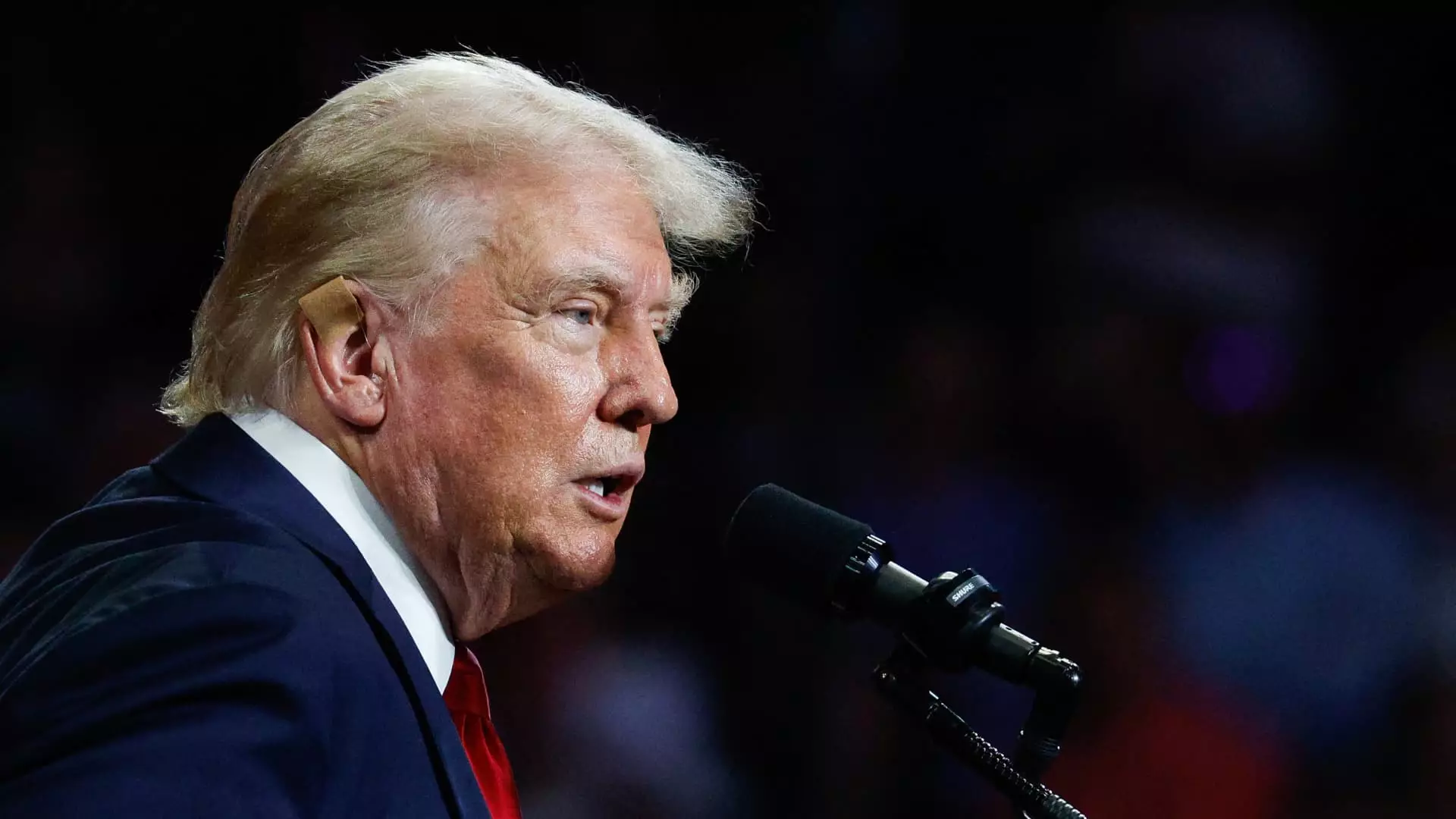Former President Donald Trump’s speech at the Bitcoin Conference in Nashville fell short of promising to establish an official U.S. bitcoin strategic reserve currency. While he pledged to maintain the current level of bitcoin holdings in the U.S., his approach appeared to lack the revolutionary commitment that some crypto enthusiasts were expecting. Trump’s strategy of permanently holding onto the U.S. government’s bitcoin stake contradicts the current practice of the U.S. Marshals Service, which regularly auctions off seized bitcoin and other cryptocurrencies. This deviation from the norm raises questions about the feasibility and impact of Trump’s proposed policy.
Trump’s reluctance to match the more sweeping pitch of third-party presidential candidate Robert F. Kennedy Jr. is notable. Kennedy’s proposal to establish a 4 million bitcoin strategic reserve mirrors the country’s gold reserves and involves regular purchases of bitcoin to bolster its value. In contrast, Trump’s plan seems less ambitious and lacks the detailed mechanics required for implementing such a significant policy shift. The differing visions presented by Trump and Kennedy highlight the complexities associated with incorporating bitcoin into the U.S. government’s financial strategy.
Despite Trump’s statements, establishing a U.S. bitcoin reserve would likely require new legislation and congressional approval. An executive order alone would not be sufficient to create such a reserve, as significant changes in legislation would be necessary to support the initiative. Senator Lummis of Wyoming’s plan to introduce legislation supporting a strategic bitcoin reserve underscores the need for a broader legislative framework to formalize the government’s role in holding and managing bitcoin assets. This legislative process could involve taxpayer funding and would require support from both political parties to come to fruition.
The potential establishment of a U.S. bitcoin reserve could have significant implications for the U.S. economy and financial system. By holding a portion of the world’s bitcoin supply for an extended period, the government aims to reduce its debt and fortify the dollar against inflation. The proposed reserve would introduce a new layer of legitimacy to bitcoin and align it more closely with traditional asset classes, paving the way for broader adoption by institutional investors and financial institutions. However, the impact of such a reserve on the cryptocurrency market and broader economy remains uncertain.
Following Trump’s speech, bitcoin’s price remained relatively stable despite the lack of a detailed commitment to establishing a U.S. bitcoin reserve. While the market response may not have been as dramatic as anticipated, the prospect of a national bitcoin reserve continues to generate interest and speculation among investors and industry stakeholders. The potential for other countries to follow suit in creating their own reserves could reshape the global cryptocurrency landscape and drive further price volatility in the market. As the debate over the role of bitcoin in the U.S. economy evolves, the future of digital currencies and their integration into traditional financial systems remains a topic of growing significance.

